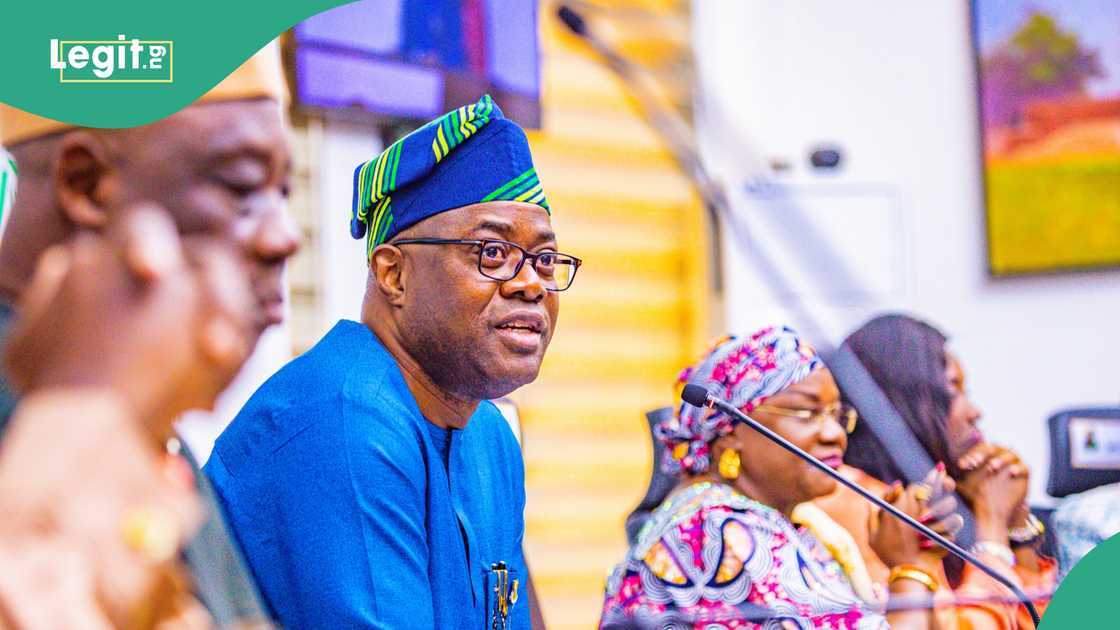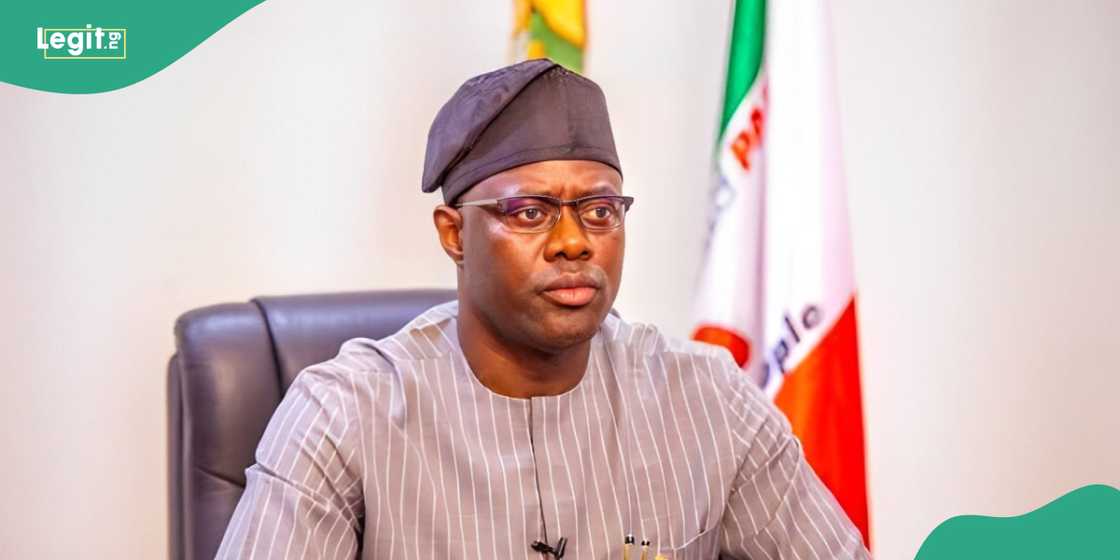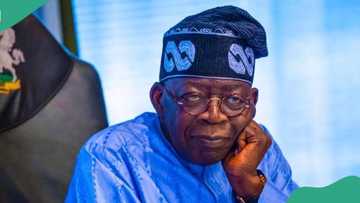Nigerian Governor Mentions Number of Years Leaders Should Spend in Office, Details Emerge
- Oyo State Governor Seyi Makinde proposes a five or six-year single term for all elected officials, arguing it would lead to more focused governance
- Makinde explains how re-election campaigns and the COVID-19 pandemic disrupted his first term, suggesting that a single term would allow for greater productivity in office
- The governor urges a constitutional change to implement a single-term limit, sparking discussions on whether this approach would benefit Nigeria’s political system or pose new challenges
Oyo state Governor, Seyi Makinde, on Friday, June 6, proposed a significant change in Nigeria’s political structure, advocating for a single term of five or six years for elected officials across all levels of government.
He made the suggestion during a gathering of Muslim faithful, traditional rulers, and political office holders at his Ikolaba private residence in Ibadan, following the Eid-el-Kabir prayers.

Source: Facebook
The event was attended by several notable figures, including Deputy Governor Bayo Lawal, Otun Olubadan of Ibadanland Oba Rashidi Ladoja, former deputy governors, and various political leaders from the state.
Single term better for governance, says Makinde
While addressing the gathering, Makinde explained that a single term of five or six years would be sufficient for any government to focus on governance, implement policies, and deliver on its mandate without the distractions associated with re-election campaigns.
He argued that the current system of a two-term tenure, where each term lasts four years, is inadequate for meaningful governance.
“It is clear that a single term of five or six years is enough for any government to focus on its priorities and serve the people effectively. If we remove the distractions that come with seeking re-election, a single term is more than enough to make a real impact,” Makinde stated.
Governor highlights challenges of re-election distractions
Makinde further explained that in his personal experience, his first term in office was interrupted by the COVID-19 pandemic, which cost him almost a full year of governance.
He added that the political distractions of campaigning for a second term further limited the effectiveness of his administration.
“Look at my own trajectory in government. I have already spent six years, but we lost a year to COVID-19. Now, as I focus on my second term, people are already asking about what I will do next. The truth is, I’ve only had about five solid years to focus on governance in my eight years in office. This is why I believe a single term would be more productive,” he said.
Governor calls for constitutional amendment
Makinde stressed that his proposal for a single-term limit is not a personal matter but a constitutional issue that should be addressed to improve governance across the country.
He called for a constitutional amendment to introduce this model, which he believes could lead to more efficient leadership in Nigeria.
“This is not about me. If they say I should end it, so be it. I am calling attention to this issue because it is something that can benefit our country. It has already been raised in the National Assembly, but it is a model that we should seriously consider,” Makinde added.
Traditional leaders support the governor’s administration
In his remarks, Oba Ladoja, the Otun Olubadan of Ibadanland, who spoke on behalf of the Olubadan of Ibadanland, Oba Owolabi Olakulehin, extended prayers for the continued success and prosperity of Makinde’s administration, Vanguard reported.
He urged the people of Oyo state to offer more support to the government, acknowledging the challenges the governor has faced and expressing hope for more achievements in his leadership.
Makinde's proposal stirs debate about Nigeria's political future

Source: Twitter
Makinde’s call for a single-term limit is likely to ignite further debates about Nigeria’s political system, with many questioning whether such a change would indeed improve governance or simply create new challenges, Punch reported.
While some may agree with Makinde’s argument that a single term would lead to more focused leadership, others may raise concerns about the potential impact on the democratic process.
As the conversation continues, Makinde’s proposal for a five or six-year single term reflects his broader vision for improving governance and reducing political distractions in the country.
Analyst slams Makinde over demands
Political analyst Hayatu Hamma has dismissed Oyo State Governor Seyi Makinde’s proposal for a five or six-year single term for elected officials, arguing that tenure extension is not the solution to poor governance.
Speaking with Legit.ng on Monday, June 9, Hamma criticised the idea, insisting that leaders who cannot make tangible impact within four years are unlikely to do better with more time.
“If a politician cannot use four years to drive development, then even seven years won’t make any difference. The problem is not the length of the term—it’s the lack of vision, planning, and sincerity,” Hamma stated.
He added that Nigeria’s governance woes stem from misplaced priorities, not re-election pressures, and warned that extending tenure risks entrenching mediocrity.
APC chieftain opposes Tinubu’s automatic ticket
Previously, Legit.ng reported that Chief Charles Udeogaranya, a prominent member of the All Progressives Congress (APC) and 2019 presidential aspirant, has firmly rejected the notion of an automatic ticket for the party’s 2027 presidential candidate.
His statement came after President Bola Tinubu received endorsement from APC leadership, governors, and National Assembly lawmakers during the party’s National Summit in Abuja.
Source: Legit.ng





